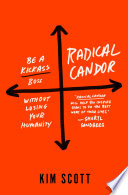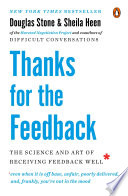We’ve all been there. Someone says something that doesn’t quite land—maybe it’s a stray comment in a meeting or feedback that feels off. Still, it lingers. You feel yourself reacting: a flicker of defensiveness, a flash of anger, or that slow spiral into self-doubt. What’s happening beneath the surface?
I often think of the law of mirrors: if it didn’t touch something inside you, you wouldn’t react. If someone told you, “You have green skin and are an alien,” you wouldn’t even flinch—it’s too absurd. But when a comment hits close to a fear or self-perception, there’s an opportunity to go deeper.
In systems coaching, we work with this by turning inward. Not to judge the comment, but to ask: Why did this make me vulnerable?
Finding the 2%: A Tool for Insight, Not Agreement
One ORSC™ tool that supports this reflection is called the 2% Truth exercise. The idea is simple but powerful: even in feedback that feels unfair, there might be a small piece—just 2%—that holds a valuable insight.
This doesn’t mean you have to agree with the critique or drop your boundaries. It means you're open to asking, What’s mine to learn here? The 2% might point to a behavior worth looking at, a recurring pattern, or a hidden fear that’s asking for attention.
When practiced in teams, this exercise opens space for shared reflection. It shifts the energy from blame and defensiveness to curiosity and growth. It’s not about who's right—it’s about what’s emerging in the system.
Vulnerability as a Signal, Not a Flaw
In systems coaching, vulnerability isn’t something to fix—it’s something to notice. It signals that something meaningful is being stirred.
Rather than focusing on what was said or who said it, we help teams explore the reaction itself:
- What’s being triggered in me (or us)?
- Where does that reaction live in our team or system?
- What story or fear is being surfaced?
- What might this be asking us to learn or shift?
This shift—from focusing on the messenger to examining the system’s response—can unlock surprising awareness.
Try the 2% Truth With Your Team
Here’s a simple way to bring this reflection into your next team meeting:
- Ask team members to think about a recent moment that triggered a strong reaction.
- Invite them to explore: Is there even a small piece of truth—just 2%—in what was said?
- Create space for sharing. Use curiosity and respect to ensure all voices are heard.
- Reflect together: What assumptions or patterns might be shifting in our system?
The Real Growth Lives in the Reaction
Change doesn’t only happen in planning meetings or strategic offsites. It shows up in the heat of the moment—in the sharp comments, the silence, the defensiveness. Within the sting of a reaction might be the wisdom of what’s next.
So next time something gets under your skin, pause. Get curious. That discomfort may not be a warning—it may be a doorway.
Further Exploration
A TED Talk that’s practical and easy to connect to workplace and team interactions.
On the role of dissent and feedback in driving real innovation and progress.

A practical guide to giving and receiving feedback that’s kind, clear, and constructive.

Written by the team behind Difficult Conversations, this book flips the script on feedback by focusing on how to receive it well. Written by the team behind Difficult Conversations, this book flips the script on feedback by focusing on how to receive it well.






